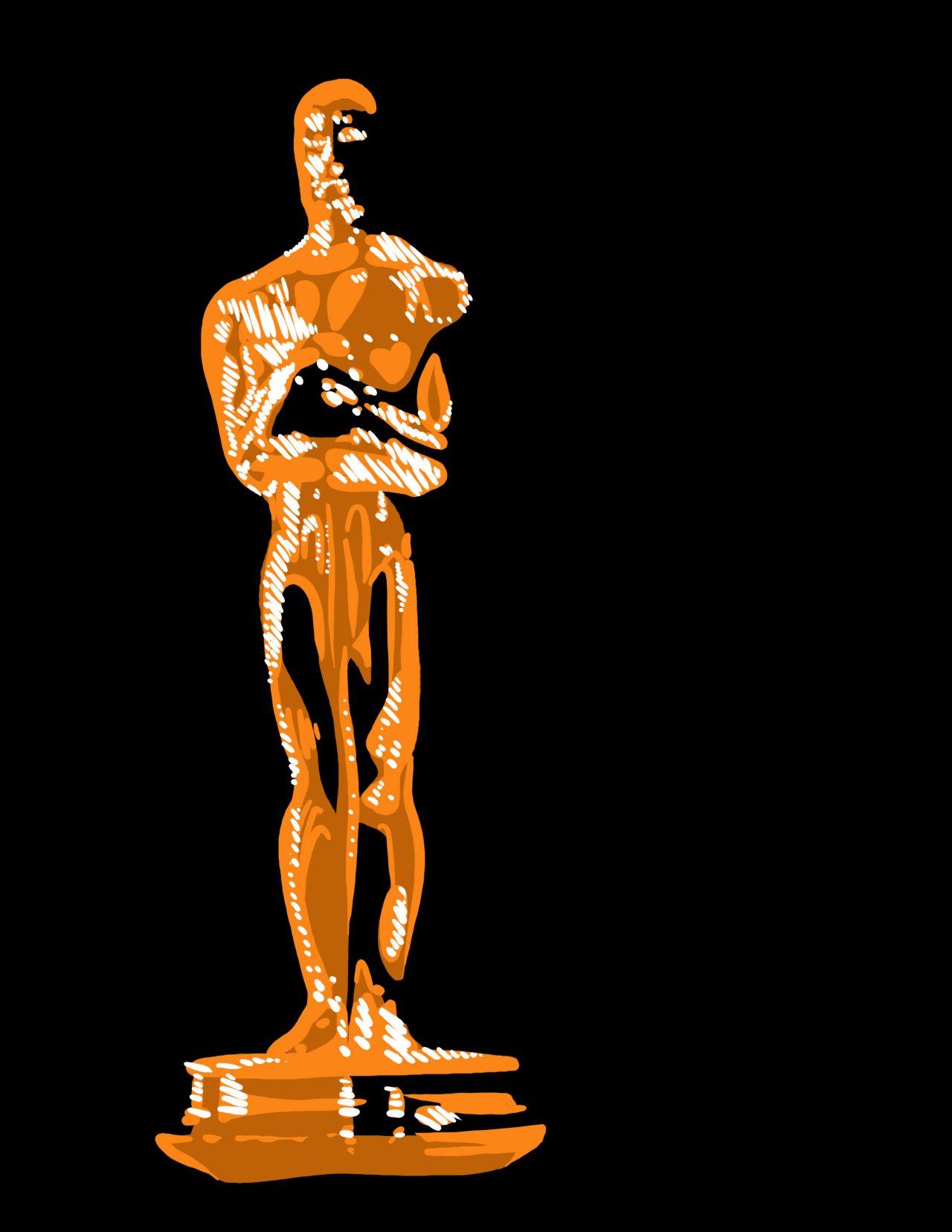Illustration by Andrea Nebhut
Let me begin by saying I like award shows like the Oscars, the Emmys and the Tonys. I think that recognition is important in the world of performing arts and that the awards act as metrics of success and symbols of excellence that inspire others.
However, I have started to understanding the viewpoint that these award shows can have negative side affects, such as crowding out other equally incredible shows, films or performances and only acknowledging a select 20 actors of a certain race.
These criticisms are overly present in my personal favorite award show, the Oscars.
The Oscars were created nearly 100 years ago and still has undisputed power over Hollywood, while also being the most-watched award show. But none of this has stopped the constant flow of backlash and scandal that the Oscars seem to create. Over the past five years, the Oscars have been criticized for focusing its prestigious golden statuettes to a select group of actors that its many voting boards favor, actors such as Daniel Day Lewis, Meryl Streep, Christian Bale, Matthew McConaughey and other white people.
In 2016, the Oscars were heavily criticized that all 20 of their Best Actor and Actress nominations were white, while other widely recognized and respected award shows and festivals recognized actors of a variety of races.This lead to a boycotting of the show by big name stars like Spike Lee, Will Smith and Michael Moore.
In response, the Academy reshuffled their voting bodies, cycling out the old for the new and worked to change their voting body demographic percentages away from being 94 percent Caucasian and 77 percent male.
This was meant to diversify its voting body and take out members who are no longer in the business to hopefully have the award show represent the new generation of people in the industry. But it seems the Oscars still have a strange bias towards certain films and not the ones that seem to be the best.
While one could say its racial bias has been dampened, the Oscars still heavily favor the big budget, biopic films while ignoring independent films or any film that takes risks beyond putting a famous actor in lots of makeup. Examples of this would be the choice not to give “Blade Runner: 2049” a Best Picture nod even though it was widely regarded as one of the best films of the year and the choice to give “The Post” one just because Tom Hanks and Meryl Streep were in it.
We get it, they can act, but they don’t need or deserve an award for each film they do.
Another example of the poor decision making of the Oscars is best shown in last year’s awards. The Best Picture nominations were “Greenbook,” “BlacKkKlansman,” “A Star is Born,” “The Favourite” and “Vice.” Out of this pool of films alone the Oscars were criticized for opting not to award films like “Eighth Grade,” “If Beale Street Could Talk,” “Won’t You Be My Neighbor” and “Paddington 2,” one of only eight films of the year to earn 100 percent on Rotten Tomatoes.
This is just a small handful of films that were wonderful, unique and should have been recognized as exquisite films by the award show that was created for that exact purpose.
Instead, films like “A Star is Born,” which was remake of a remake, got nominated for eight Oscars. It is not even the first time Hollywood looked through its golden years and said, “Why not? Let’s do that again with two famous people. Everyone will buy into it,” and everyone did.
The Academy also bought it, and it somehow got a Best Picture nod while “Eighth Grade,” a low-budget tale of the trials and tribulations of being a middle schooler in the saturated digital world, didn’t.
The 2019 Oscars received a myriad of reviews, ranging from mild disillusion to outright hatred.
The show was praised for its racially diverse award nods and for some long overdue winners, such as Spike Lee for Best Adapted Screenplay with “BlacKkKlansman.”
But it was heavily criticized once again when they awarded Best Picture to “Greenbook,” a film that discussed America’s racism in a way that, as said in the New York Times, “neatly resolved [it] through a white character’s proximity to a black one.” Suffice to say, the Academy couldn’t have gotten it more wrong.
So, where are the Oscars headed for 2020? We have seen a muted summer for movies but a fall full of promise and dozens of interesting films. The fall film festivals are great places for indie films to shine through the malaise of Hollywood regurgitation, and we can follow on the hype train that will carry them to awards season.
There is always hope — the Oscars do sometimes get things right. It’s just a matter of them not getting the rest of it wrong.







